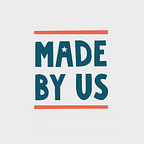Gen Z is Changing Changemaking
A primer and a cheat-sheet from our session at SXSW
Born between 1997 and 2012, Gen Z has more than arrived — they’re here and they’re making themselves heard. But as they pick up the baton to build our global future, they are also inheriting all of our past lessons learned for how to make change. How will they put their own spin on tried and true methods? What’s missing from modern movements that we can learn from history? And how can brands, institutions and leaders learn from the Gen Z approach?
Our panel last week at SXSW in Austin, TX addressed these questions to a packed house.
Young people have always influenced the politics of our nation, from the authors of the Declaration of Independence to the architects of the Civil Rights Movement. And some tools have had evergreen resonance, like petitions and boycotts. Understanding the history of change-making provides valuable inspiration and lessons for “right now.”
And yet…many of these tools for trading ideas and building momentum are being updated thanks to technology and new needs. We’ve moved from phone trees to Slack communities, from Meetup.org to Clubhouse, from fliers to TikTok.
Our panel shared case studies on current efforts for changemaking, including:
- CAPITAL: DAOs and NFTs invite “the crowd” into the funding effort, ownership and design of movements
- MEDIA: The importance of understanding how to leverage traditional, legacy media like cable TV and newspapers remains — because the rest of the generations are getting news there
- ONLINE COMMUNITIES: Slack, Notion and Discord have become spaces to find likeminded peers and organize efforts together
- YOUTH THEMSELVES: Peer organizing around voter registration on college campuses, such as ASU, leverage social media and influencers to drive interest
- COMMEMORATION: From Zoom graduations to monument graffiti to the Civic Season, new traditions cement the story we tell about ourselves and shift cultural change
Each case study we shared offered insights into the tactics used by change-makers today, and also pointed to some clear trends:
Across the board, there is a shift over time to more openness, bottom-up, crowdsourced and intersectional movements.
Young people today are leading this charge, armed with history as a tool. So how can we support their efforts? Our panel highlighted a few key takeaways:
OFFER TRAINING: Young adults need training to learn the tools, tactics and systems for making change. This might look like anything from civics education in schools, to courses on how to build a messaging toolkit, to coaching from elder statesman of civic-changemaking.
SHARE CAPITAL: Far and away the thing most needed by Gen Z is capital — help paying for labor, advertising, travel to spread the message, materials and more. You could support with philanthropy, sponsoring events, buying merch or NFTs. But capital might also include cultural capital, like sharing your platform or making introductions.
LEND INFLUENCE: Consider the access you have to things like mainstream media, event producers, tech firms, philanthropists and consider making introductions. Sharing access to influence also looks like uplifting Gen Z efforts and voices and centering them in your work.
ACKNOWLEDGE LIVED EXPERIENCE: Center Gen Z voices. Ask them what they’re thinking. Look at your boards and staff and see how the generational representation shakes out. We know seasoned changemakers have lots of lessons to offer — but so does the generation who knows far more about what it’s like to be a young person today. Get curious about what that feels like.
LOOK BEYOND ELECTIONS: A lot of the “rushing waters” of civic engagement go to voting rights, registration and casting a ballot — hugely important stuff. But there’s MANY other causes that are important to Gen Z where they are leading the way — whether climate action, racial justice, tech privacy, financial regulation, nature conservation, etc. — and other generations can bring in resources to support.
What did we miss? What changes are you seeing in the way people are making change today, and making their voices heard?
Join the Made By Us community using history to power the future! Register for the Civic Season here.
